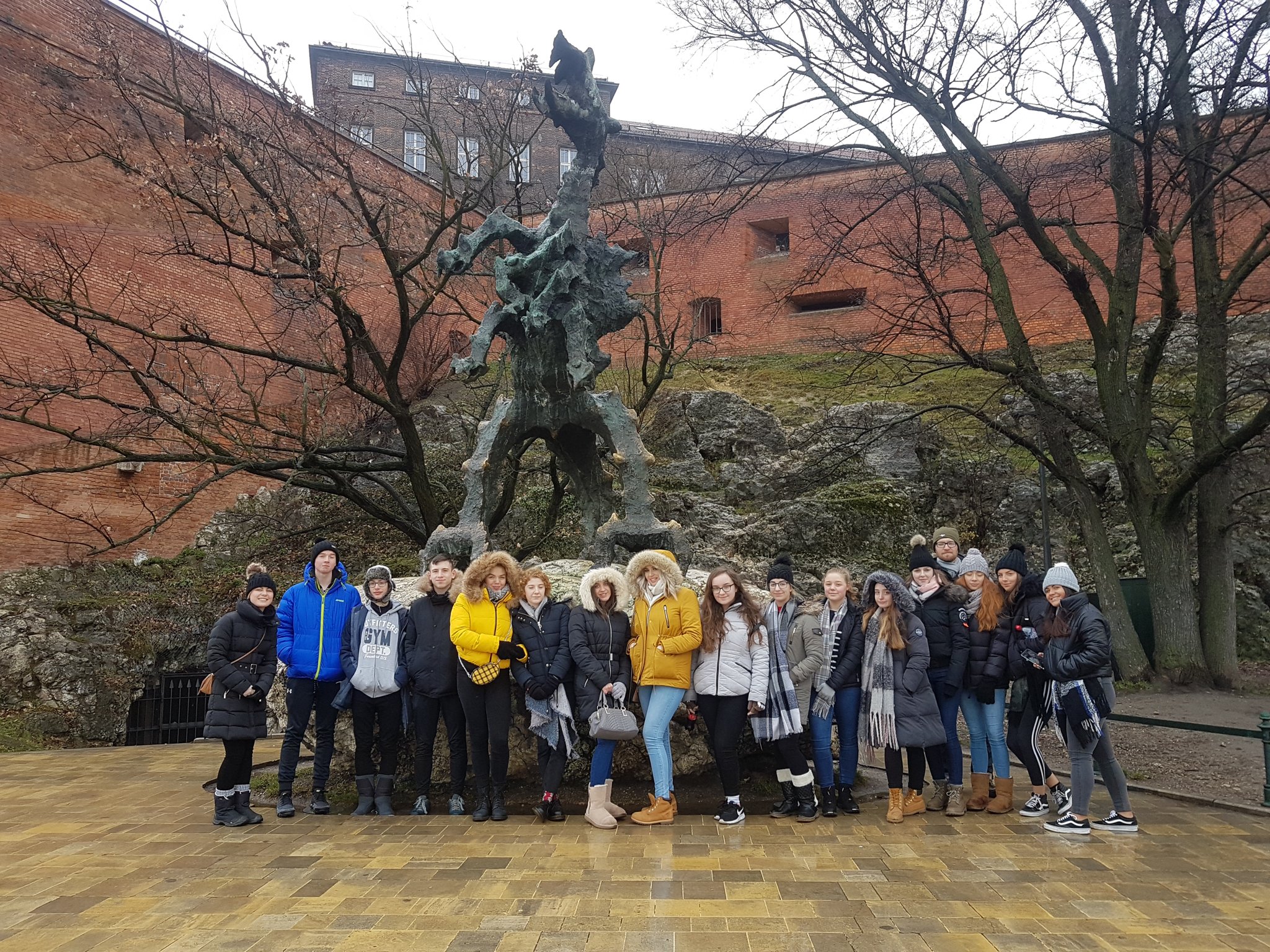Sociology students travelled to Krakow, Poland

Sociology students travelled to Krakow in Poland to explore the region. The main focus of the trip was to look at the Holocaust as an example of a state crime. While in the city students also looked at religion more broadly in Poland.
Krakow is situated in southern Poland, close to the borders of both the Czech Republic and Slovakia. The city has had a long and turbulent history, spanning over 1000 years. As a results, its culture and traditions are extremely complex.
In order to learn about the city's history, the students embarked on a guided walking tour.

Krakow was taken under German control during the Second World War in 1939. Students visited Auschwitz-Birkeneau, the most infamous concentration camp of the war, situated around 40 miles outside of Krakow. Throughout the concentration camps existence, "1.1 million people died during the four and a half years [...]; one million of them were Jewish men, women and children." The BBC also states that "more people died in Auschwitz than the British and American losses of World War Two combined." (BBC Press Office, 2004)
Following the camp, students then visited the Galicia Jewish Museum where they were able to hear a Holocaust survivor talk about their experiences.
The Schindler's Factory Museum was the next stop on their journey which houses two museums: the Museum of Contemporary Art in Kraków and a branch of the Historical Museum of the City of Kraków. They were able to learn about life in Krakow during the Nazi occupation.

Students also visited the Wieliczka Salt Mine less than 10 miles from the city centre. Dating back over 700 years, the salt mine features an outstanding chapel carved from salt.

While in Poland, the students immersed themselves in Polish culture, eating traditional Polish meals and experiencing traditional Polish folk dancing. They also managed to visit the Krakow Christmas markets too.

Find out more about studying Sociology at Ashton here.
Tags: trips sociology social sciences poland


.png)




.png)

